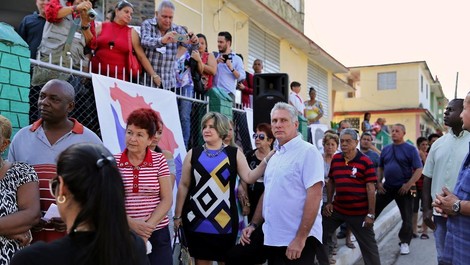Your podcast discovery platform
Curious minds select the most fascinating podcasts from around the world. Discover hand-piqd audio recommendations on your favorite topics.

piqer for: Globalization and politics Global finds
Luis BARRUETO is a journalist from Guatemala. Studied business and finance journalism at Aarhus University in Denmark and City University London.
Cuba After The Castros: Successor Díaz Canel Is In For A Tough Presidency
Cuba is about to enter the post-Castro era. Since the beginning of Fidel Castro's government in 1959, there has only been a change in leadership once, when his brother Raúl took over in 2006. But on April 19, First Vice President Miguel Díaz-Canel will replace the Castros in the presidency.
In a piece for Foreign Affairs, Cuba expert Marguerite Jiménez – the Country Director for the Washington Office On Latin America (WOLA) – examines some of the challenges ahead for the incoming President.
Díaz-Canel is in many ways different from the Castros. He did not take part in the Cuban Revolution, is the first civilian to lead the island, and he will "be the first president since the revolution who is not also the first secretary of the party, a position that Castro will continue to occupy," Jiménez explains.
But don’t expect any drastic changes. "He is a consummate political insider", and is thoroughly committed to the revolution's ideals. He has been a high ranking member of the Communist Party – the only one in existence – since the nineties, and is likely to have been chosen by consensus. Thus, if Díaz-Canel delivers change too quickly – especially pressing economic issues –, he risks alienating Communist Party conservatives.
But as William LeoGrande explains in The Conversation, "Going too slowly will anger reformers, not to mention frustrate the Cuban people". Jimenez' piece explains these internal politics constraints, and does a great job explaining how other outside actors will also have a role in enabling a climate for reform. The US in particular, needs to "recognize Cuban sovereignty and resist calling for regime change", to "reduce the risks to Díaz-Canel of undertaking more significant changes". She also delves into the island's relations with the European Union, Russia, and China.
